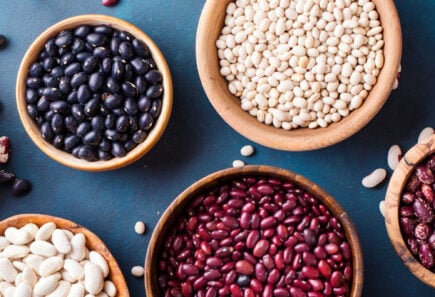
The Science of Alt Protein: Overcoming animal-free meat challenges with plant-based tissue engineering

Dr. Daniel Dikovsky
CTO of Redefine Meat
Event description
Today the necessity of replacing animal meat with animal-free meat alternatives is commonly accepted in our society. It matured along with the growing awareness of the extent of ecological damage that animal farming and industrial meat production are causing to our planet and its biodiversity. While it is clear that today’s society is not ready to give up the meat-eating experience, the food industry and food science are facing the challenge and the opportunity of making meat without animals. The degree to which such alternative meats should imitate their animal twin varies among the market segments. While vegans and vegetarians can be content with even a rough approximation of meatiness, the flexitarians, who replace only part of their diet with alternative meats, set a much higher expectation level. Indeed, the introduction of a new generation of meat replacements in the last decade seemed to drive penetration to new market segments and expand the total market size. However, recently we have observed stagnation, probably caused by the lack of progress in the culinary and organoleptic performance of alternative meats. There is much work done to further disrupt the alternative protein industry and new ways are proposed for taking the new meat performance another big leap ahead.
In this seminar, Dr. Daniel Dikovsky, CTO of Redefine Meat, will disclose some novel ways for reconstructing meat using plant-based ingredients, while acknowledging its anatomical origins and its composite tissue structure. He will show that most of the organoleptically relevant meat features can be mimicked by first modeling the composite structure of meat and its biochemical building blocks and then reconstructing them separately via plant-based formulations. Finally, an automatized process is employed for assembling these blocks into a digitally predefined structure and recreating the meat tissue elements and their dynamical and thermal characteristics. The “Plant-based Tissue Engineering” term is proposed for describing high-end meat mimics that address the tissue-level complexity using plant-based ingredients combined with advanced fabrication systems.
*Please note: This seminar will not be recorded, so you will need to attend the live presentation to benefit from our speaker’s insights.
Meet the speaker

Daniel Dikovsky, Ph.D.
Daniel Dikovsky serves as the Chief Technology Officer at Redefine Meat, an Israeli company revolutionizing the meat industry by crafting premium beef cuts from plants instead of cows. Redefine Meat utilizes plant-based ingredients to create meat tissue components and employs novel food manufacturing systems for combining these components into whole muscle cuts. With a global reach, Redefine Meat mass-produces and distributes its premium alternative meat products worldwide.
Daniel’s journey at Redefine Meat began in 2019, bringing with him a wealth of innovation experience from his tenure at Stratasys, a leading 3D printing company. During his time at Stratasys, Daniel led the development of groundbreaking multi-material 3D and 4D printing technologies, notably contributing to the advancement of digital anatomy printing. This technology now enables the 3D printing of human body parts, offering alternatives to cadavers and animals in various medical applications.
Daniel holds Bachelor’s and Master’s degrees in Chemistry from the Hebrew University in Jerusalem. He pursued his Ph.D. research at Technion’s Biomedical Engineering department, where he developed novel tissue engineering systems based on hybrid 3D scaffolds. Daniel’s innovative contributions include more than 40 patent families authored in the fields of 3D printing and alternative protein solutions.


